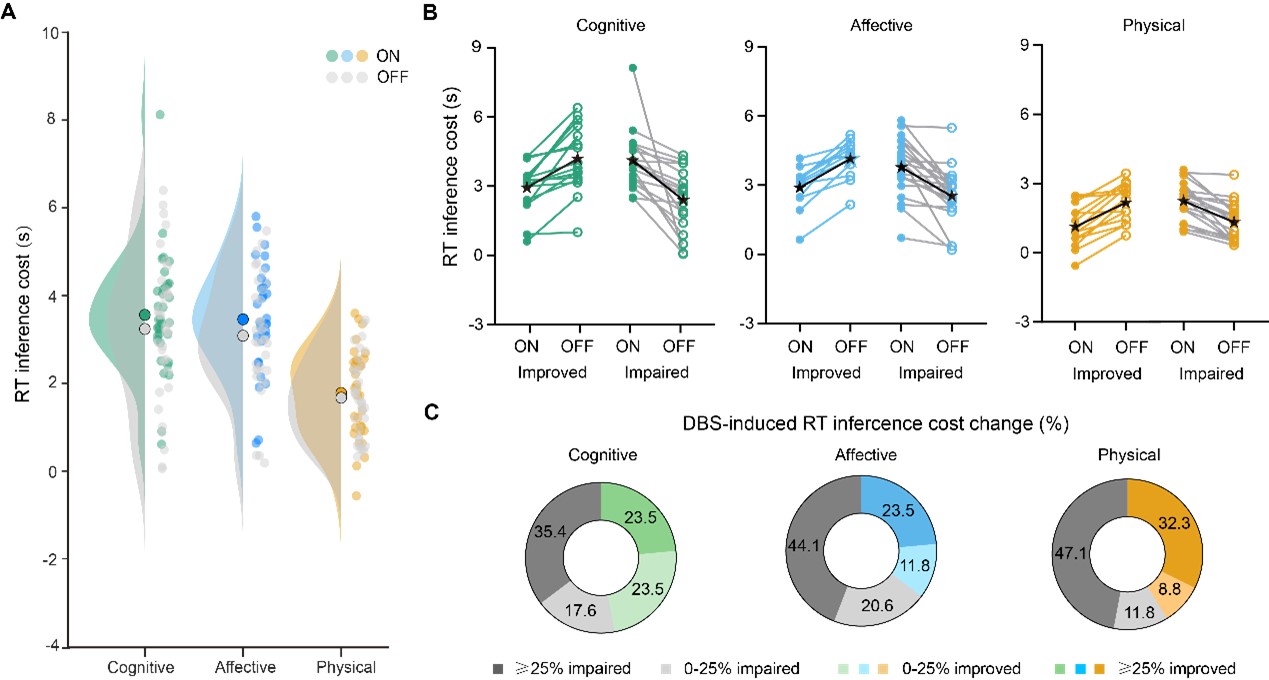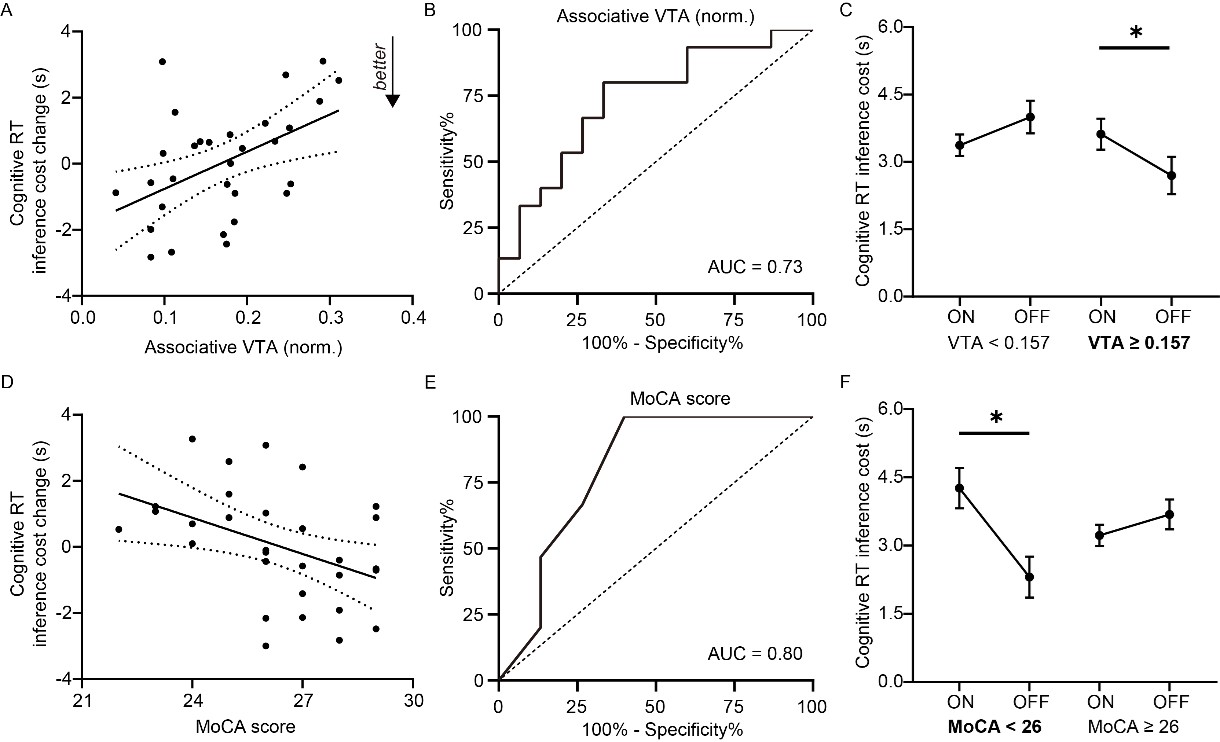Category: Parkinson's Disease: Cognitive functions
Objective: This study aims to investigate the effect of subthalamic nucleus (STN) deep brain stimulation (DBS) on ToM using the Parkinson’s disease (PD) model.
Background: Theory of mind (ToM) is essential for social interaction in human beings, which supports us to infer the mental state of others. In PD, dysfunctions in both cognitive (inference of knowledge) and affective (inference of emotion) components have been widely reported. The importance of the prefrontal cortex in ToM has been confirmed by research, but the subcortical neural circuitry has not yet been proven. The STN, considered a main relay station of the basal ganglia, may play an important role.
Method: Thirty-four patients with idiopathic PD (fifteen women aged 62.2±8.3 years) completed a Yoni task with DBS ON and OFF (Fig.1,2).
Results: Patients with greater associative STN stimulation infer more slowly on cognitive ToM, but not affective ToM (Fig 3). Stimulating associative STN can adversely affect cognitive ToM in PD patients, especially in patients with a wide range (≥0.157) of stimulation or cognitive decline (Fig 4).
Conclusion: This study suggests that STN indeed contributes to mentalizing in PD. Special attention needs to be paid to parameter settings in patients with cognitive decline.
Fig.1 The Yoni task
Fig 2. Subthalamic VTAs and MDS-UPDRS III scores.
Fig 3. The RT inference cost of the Yoni task
Fig 4. Prediction
To cite this abstract in AMA style:
HY. Xiao, LQ. Lang, Z. Ye, JJ. Wu. Subthalamic Nucleus Stimulation Modulates Cognitive Theory of Mind in Parkinson’s Disease [abstract]. Mov Disord. 2024; 39 (suppl 1). https://www.mdsabstracts.org/abstract/subthalamic-nucleus-stimulation-modulates-cognitive-theory-of-mind-in-parkinsons-disease/. Accessed April 18, 2025.« Back to 2024 International Congress
MDS Abstracts - https://www.mdsabstracts.org/abstract/subthalamic-nucleus-stimulation-modulates-cognitive-theory-of-mind-in-parkinsons-disease/




